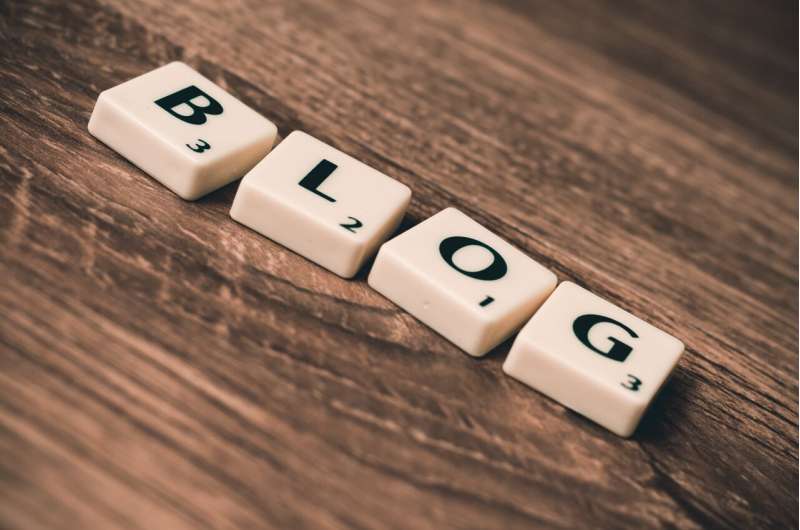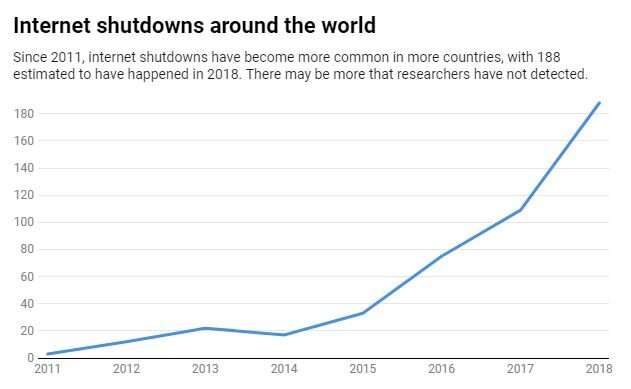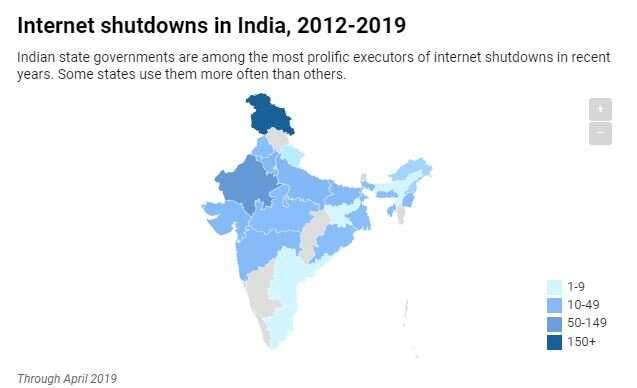Shutting down social media does not reduce violence, but rather fuels it

In the wake of a that claimed more than 250 lives on April 21, the government of Sri Lanka shut off its residents' access to , including Facebook, WhatsApp, YouTube, Snapchat and Viber. The official government concern was that "."
Some commentators , suggesting the dangers of disinformation on social media in times of crisis. on the impact of shutdowns and other information controls on societies worldwide have led me to the exact opposite conclusion.
A of academics, businesses and civil society groups shares my view. The blackouts deprived Sri Lankans of impartial news reports and as they sought to find out who had survived and who was among the dead and injured. Most strikingly, recent research suggests that the blackouts might have increased the potential for protest and violence in the wake of the attack.
A constellation of control
Sri Lanka's latest social media shutdown was not an isolated incident. The first time Sri Lanka took a was amid . It was one of or large-scale disruptions to digital communication that year all around the world, according to digital rights advocacy organization Access Now.
Overall, since the Arab Spring began in 2010, governments have carried out at least across more than . Those include hundreds of ephemeral shutdowns in India, where they as a localized response to unrest in the northern region of Kashmir and to most other states.
The number also includes so-called "," which last for weeks or months at a time. For example, long-lasting, government-imposed blackouts such as that of Anglophone Cameroon and have in Chad for more than a year.
In after , civil society organizations have documented the caused by internet shutdowns and the they produce.

Only recently have researchers begun to ask a more fundamental question: Do massive disruptions to digital communication achieve their intended purposes? Sri Lanka's government is one of many to publicly claim that their goal in severing communication links is to prevent the spread of disinformation and decrease violence based on those falsehoods – but not a single one has followed a shutdown with any sort of evidence that it worked to protect public safety.
Exploring the (dis)connection
Of course, the coexistence of social media and social turbulence does not necessarily imply that one causes the other. have to figure out if there is a link between access to social media and violence, but it's an extremely difficult task.
For one thing, social media websites and services are , making them hard to study over time. Connectivity also advances at a lightning-fast pace: In 2018, for instance, increased at an annual rate of 30%, connecting hundreds of millions of people for the first time. Today, are introduced to the internet every second.
Shutdowns, however, are fixed in time and space, and their effects blanket large swathes of an area's population. This lets scholars study their effects with more confidence. Paradoxically, then, one of the best methods of evaluating technology's effects on society may be to examine what happens when communications are suddenly cut off.
Research on early blackouts has shown that in 2011 , spreading protesters away from Tahrir Square and into numerous decentralized pockets of resistance. Coordination of the demonstrations swiftly moved from Facebook event pages to individual efforts in each neighborhood. This proved impossible for security forces to subdue. Ten days later, the Mubarak regime fell.
In the Syrian Civil War, the government used shutdowns as a weapon of war, following up with . In Africa, authoritarian the communication infrastructure and are more inclined to pull the plug, but there is no evidence to suggest that shutdowns are effective in discouraging street protest or violent unrest.

Indeed, official explanations for shutdowns – if the government acknowledges them at all – are with their likely true motivations, which include and ensuring a during contentious elections. In the midst of a crisis, this leaves the government as the only official gatekeeper of information. That becomes especially problematic when the government itself becomes a conduit for false and potentially harmful news, as was the case when Sri Lankan media circulated police reports that as a terrorist following the recent attack.
What happens without a connection?
Protests are not monolithic forces, and their participants can adapt to changing circumstances – including a sudden lack of information and even a blockage of communication and coordination. The global proliferation of shutdowns and rapid in about protests and conflicts enable researchers to analyze not only whether protests continue during internet blackouts, but also how they shift and change.
In India, state governments have faced thousands of peaceful demonstrations, as well as episodes of violent unrest. The country has become by far the world's of deliberate internet blackouts over the last several years.
To find out the role of internet access in these events, I used on thousands of protests that occurred in the 36 states and Union Territories of India in 2016, as well as data tracking the location, timing and duration of shutdowns from and civil society groups.
: Under a blackout, each successive day of protest had more violence than would typically happen as a protest unfolded with continued internet access. Meanwhile, the effects of shutdowns on peaceful demonstrations, which are usually to rely on careful coordination through digital channels, were ambiguous and inconsistent. In no scenario were blackouts consistently linked to reduced levels of protest over the course of several days. Instead of curtailing protest, they seemed to encourage a tactical shift to strategies that are less orderly, more chaotic and more violent.
Darkness is a phone call away
Recent events only seem to confirm these dynamics. The regimes of and both resorted to shutdowns before imploding. The drastic measures did nothing to rein in the protests in either country. Instead, shutting off internet access may have accelerated their downfalls.
Even if shutdowns are ineffective, they can be tempting for governments that need to be seen taking action. let them implement drastic measures like shutdowns easily and quickly, with a written order or even a . But every time a government uses the tactic, it makes – in the same country and around the world. The evidence shows that this takes a heavy toll on their citizens, both economically and in terms of human rights, without offering them any additional protection or safety.
Provided by The Conversation
This article is republished from under a Creative Commons license. Read the .![]()





















